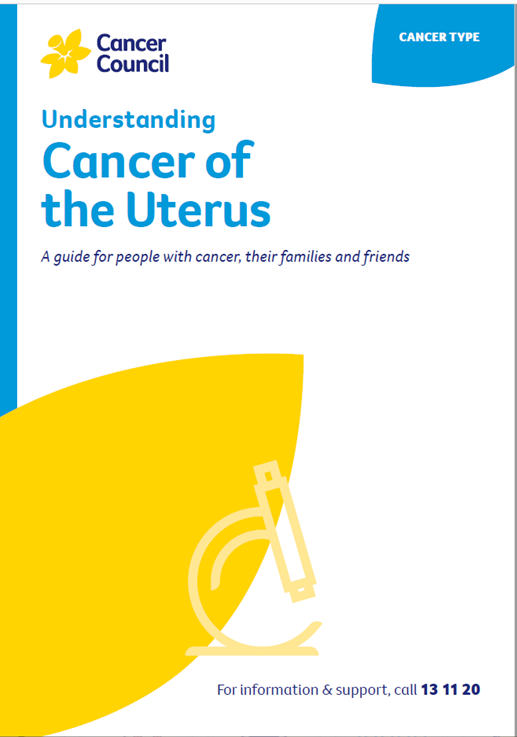- Home
- Cancer of the uterus
- Managing side effects
- Bowel changes
Bowel changes
Treatment for cancer of the uterus can affect the way the bowels work. These changes are usually temporary, but for some people, they can be permanent and can have a significant impact on quality of life. Talk to your treatment team if you are finding bowel issues hard to manage.
Learn more about:
Constipation
Constipation is when you have difficulty having a bowel movement (pooing) regularly or often. It is important to avoid constipation, especially in the days after surgery, because it may lead to more discomfort or cause you to strain when you’re sitting on the toilet.
Talk to your dietitian or doctor about making changes to your diet or taking medicines if you are constipated.
Diarrhoea
Diarrhoea is the frequent passing of loose, watery faeces (poo) from the bowels. A dietitian can suggest changes to your diet to reduce the number of bowel movements.
Radiation proctitis
Radiation therapy can damage the lining of the rectum, causing inflammation and swelling known as radiation proctitis. This can cause a range of symptoms including:
- blood in bowel movements
- diarrhoea
- the need to empty the bowels urgently
- loss of control over the bowels (faecal incontinence).
Radiation proctitis usually gets better after treatment has finished, but it can develop some time after treatment (called a late effect). Talk to your treatment team about your risk of developing radiation proctitis. If you have any ongoing bowel problems, they may refer you to a gastroenterologist.
Blood in bowel movements
Blood vessels in the bowel can become more fragile after radiation therapy. This can cause blood to appear in your faeces, even months or years after treatment. Always seek advice from your specialist or GP if you notice any new or unusual bleeding.
Tips for managing bowel changes
For constipation |
For diarrhoea |
|
|
→ READ MORE: Lymphoedema and cellulitis
Podcast: Appetite Loss and Nausea
Listen to more episodes from our podcast for people affected by cancer
More resources
A/Prof Orla McNally, Consultant Gynaecological Oncologist, Director Oncology/Dysplasia, Royal Women’s Hospital, Honorary Clinical Associate Professor, University of Melbourne, and Director of Gynaecology Tumour Stream, Victorian Comprehensive Cancer Centre, VIC; A/Prof Yoland Antill, Medical Oncologist, Peninsula Health, Parkville Familial Cancer Centre, Cabrini Health and Monash University, VIC; Grace Guerzoni, Consumer; Zeina Hayes, 13 11 20 Consultant, Cancer Council Victoria; Bronwyn Jennings, Gynaecology Oncology Clinical Nurse Consultant, Mater Hospital Brisbane, QLD; A/Prof Christopher Milross, Director of Mission and Radiation Oncologist, Chris O’Brien Lifehouse, NSW; Mariad O’Gorman, Clinical Psychologist, Liverpool Cancer Therapy Centre and Bankstown Cancer Centre, NSW.
View the Cancer Council NSW editorial policy.
View all publications or call 13 11 20 for free printed copies.
Need to talk?
Support services
Life after cancer treatment
Webinars, exercise and nutrition, sexuality programs, and back-to-work support
Coping with cancer?
Speak to a health professional or someone who has been there, or find a support group or forum
Cancer information
Nutrition during and after cancer treatment
Healthy eating habits to help you maintain good nutrition
Relaxation and meditation
Learn how relaxation and meditation can help you both during and after cancer treatment

